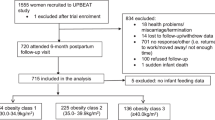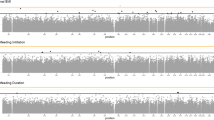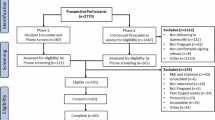Abstract
Recent studies have identified a relationship between maternal body mass index during prepregnancy (BMI) and exclusive breastfeeding (EBF), which is less common among mothers with higher BMI. The purpose of this literature review is to provide a pooled effect for the association between maternal excess weight during prepregnancy and cessation of exclusive breastfeeding. A systematic review was performed using articles present in six databases (PubMed, Scopus, Web off Science, Science direct, CINAHL and LILACS) published till February 2017. Studies investigating the association between excess maternal weight during prepregnancy and cessation of exclusive breastfeeding were included in the review. A meta-analysis using random effects to obtain a pooled effect of the studied association was conducted only with studies reporting odds ratio (OR) or available data for the calculation. Univariate meta-regression was performed to evaluate possible sources of heterogeneity. Egger's tests were also performed to verify possible publication bias. From the 6889 studies identified, 102 were read in full and 17 were included in the meta-analysis, providing 28 estimates for the association. Overall, a positive association was observed between maternal excess weight during prepregnancy and cessation of exclusive breastfeeding (ES: 1.60 (95% CI: 1.47, 1.74), I2: 93.2%). According to the used independent variables, no sources of heterogeneity were identified between studies Bias in publication was found. Maternal excess weight during prepregnancy was associated with cessation of exclusive breastfeeding. A standardized measure for exclusive breastfeeding is still needed for estimating its duration, in addition to further studies in developing countries to understand what could explain the heterogeneity of the findings.
This is a preview of subscription content, access via your institution
Access options
Subscribe to this journal
Receive 12 print issues and online access
$259.00 per year
only $21.58 per issue
Buy this article
- Purchase on SpringerLink
- Instant access to the full article PDF.
USD 39.95
Prices may be subject to local taxes which are calculated during checkout



Similar content being viewed by others
References
Victora C, Horta B, Mola C, Quevedo L, Pinheiro R, Gigante D, et al. Association between breastfeeding and intelligence, educational attainment, and income at 30 years of age: a prospective birth cohort study from Brazil. Lancet Glob Health. 2015;3:e199–205.
Horta B, Mola C, Victora C. Long-term consequences of breastfeeding on cholesterol, obesity, systolic blood pressure and type 2 diabetes: a systematic review and meta-analys. Acta Pædiatr. 2015;104:30–37.
Horta B, Victora C Short-term effects of breastfeeding: a systematic review on the benefits of breastfeeding on diarrhoea and pneumonia mortality WHO 2013.
León-Cava N, Lutter C, Ross J, Martin L. Quantifying the benefits of breastfeeding: a summary of the evidence. Washington, D.C.: PAHO ©; 2002.
Kramer MS, Chalmers B, Hodnett ED. ea. Promotion of Breastfeeding Intervention Trial (PROBIT): A randomized trial in the Republic of Belarus. JAMA. 2001;285:413–20.
WHO WHO. The optimal duration of exclusive breastfeeding: a systematic review. WHO/01.08. WHO/FCH/CAH/01.23. Geneva: World Health Organization; 2001. 2001.
Victora C, Bahl R, Barros A, França G, Horton S, Krasevec J, et al. Breastfeeding in the 21st century: epidemiology, mechanisms, and lifelong effect. The Lancet. 2016;387:475–90.
NCD-RisC NRFC. Trends in adult body-mass index in 200 countries from 1975 to 2014: a pooled analysis of 1698 population-based measurement studies with 19·2 million participants. Lancet. 2016;387:1377–96.
Plagemann A, Harder T. Breast feeding and the risk of obesity and related metabolic diseases in the child. Metab Syndr Relat Disord. 2005;3(3):222–32.
WHO. Obesity and overweight. 2016. http://www.who.int/mediacentre/factsheets/fs311/en/. 2016.
Pan Y, Zhang S, Wang Q, Shen H, Zhang Y, Li Y. et al. Investigating the association between prepregnancy body mass index and adverse pregnancy outcomes: a large cohort study of 536 098 Chinese pregnant women in rural China. BMJ Open. 2016;6:e011227
Flegal K, Carroll M, Ogden C. Prevalence and trends in obesity among us adults, 1999-2008. JAMA. 2010;303:235–41.
Durmus B, Arends LR, Ay L, Hokken-Koelega AC, Raat H, Hofman A, et al. Parental anthropometrics, early growth and the risk of overweight in pre-school children: the Generation R Study. Pediatr Obes.. 2013;8:339–50. https://doi.org/10.1111/j.2047-6310.2012.00114.x
Hilson JA, Rasmussen KM, Kjolhede CL. Maternal obesity and breast-feeding success in a rural population of white women. Am J Clin Nutr. 1997;66:1371–78.
Hilson JA, Rasmussen KM, Kjolhede CL. Excessive weight gain during pregnancy is associated with earlier termination of breast-feeding among white women. J Nutr. 2006;136:140–6.
Baker JL, Michaelsen KF, Sorensen TI, Rasmussen KM. High prepregnant body mass index is associated with early termination of full and any breastfeeding in Danish women. Am J Clin Nutr. 2007;86:404–11.
Baker J, Michaelsen K, Rasmussen K, Sørensen T. Maternal prepregnant body mass index, duration of breastfeeding, and timing of complementary food introduction are associated with infant weight gain. Am J Clin Nutr. 2004;80:1579–88.
Verret-Chalifour J, Giguere Y, Forest JC, Croteau J, Zhang P, Marc I. Breastfeeding initiation: impact of obesity in a large Canadian perinatal cohort study. PLoS One. 2015;10:e0117512 https://doi.org/10.1371/journal.pone.0117512
Guelinckx I, Devlieger R, Bogaerts A, Pauwels S, Vansant G. The effect of pre-pregnancy BMI on intention, initiation and duration of breast-feeding. Public Health Nutr. 2012;15:840–48. https://doi.org/10.1017/s1368980011002667
Thompson L, Zhang S, Black E, Das R, Ryngaert M, Sullivan S, et al. The association of maternal pre-pregnancy body mass index with breastfeeding initiation. Matern Child Health J. 2013;17:1842–51.
Castillo H, Santos IS, Matijasevich A. Maternal pre-pregnancy BMI, gestational weight gain and breastfeeding. Eur J Clin Nutr. 2016;70:431–36. https://doi.org/10.1038/ejcn.2015.232
Amir L, Donath S. A systematic review of maternal obesity and breastfeeding intention, initiation and duration. BMC Pregnancy Childbirth. 2007;7:9.
Rasmussen K, Lee V, Ledkovsky T, Kjolhede C. A description of lactation counseling practices that are used with obese mothers. J Hum Lact. 2006;22:322–27.
Mehta UJ, Siega-Riz AM, Herring AH, Adair LS, Bentley ME. Maternal obesity, psychological factors, and breastfeeding initiation. Breastfeed Med. 2011;6(6):369–76. https://doi.org/10.1089/bfm.2010.0052. e-pub ahead of print 2011/04/16
LaCoursiere D, Baksh L, Bloebaum L, Varner M. Maternal body mass index and self-reported postpartum depressive symptoms. Mater Child Health J. 2006;10:385–90.
Kachoria R, Moreland JJ, Cordero L, Oza-Frank R. Trends in breastfeeding initiation, continuation, and exclusivity by maternal prepregnancy weight: 2004-11. Obesity. 2015;23:1895–902. https://doi.org/10.1002/oby.21151
Sharma AJ, Dee DL, Harden SM. Adherence to breastfeeding guidelines and maternal weight 6 years after delivery. Pediatrics. 2014;134:S42–S49. https://doi.org/10.1542/peds.2014-0646H
Kitsantas P, Gallo S, Palla H, Nguyen V, Gaffney K. Nature and nurture in the development of childhood obesity: early infant feeding practices of overweight/obese mothers differ compared to mothers of normal body mass index. J Matern Fetal Neonatal Med. 2016;29:290–3. https://doi.org/10.3109/14767058.2014.999035
Mäkelä J, Vaarno J, Kaljonen A, Niinikoski H, Lagström H. Maternal overweight impacts infant feeding patterns - The STEPS Study. Eur J Clin Nutr. 2014;68:43–49. https://doi.org/10.1038/ejcn.2013.229
Horta B, Victora C. Long-term effects of breastfeeding: a systematic review. Switzerland: WHO; 2013. 20 Avenue Appia, 1211 Geneva 27.
Moher D, Liberati A, Tetzlaff J, Altman DG. Preferred reporting items for systematic reviews and meta-analyses: The PRISMA statement. Ann Intern Med. 2009;151:264–9.
Cox K, Binns CW, Giglia R. Predictors of breastfeeding duration for rural women in a high-income country: evidence from a cohort study. Acta Paediatr. 2015;104:e350–e359. https://doi.org/10.1111/apa.12999
Kugyelka JG, Rasmussen KM, Frongillo EA. Maternal obesity is negatively associated with breastfeeding success among Hispanic but not black women. J Nutr. 2004;134:1746–53.
O'Sullivan EJ, Perrine CG, Rasmussen KM. Early breastfeeding problems mediate the negative association between maternal obesity and exclusive breastfeeding at 1 and 2 months postpartum1-3. J Nutr. 2015;145:2369–78. https://doi.org/10.3945/jn.115.214619
Mehta UJ, Siega-Riz AM, Herring AH, Adair LS, Bentley ME. Pregravid body mass index, psychological factors during pregnancy and breastfeeding duration: is there a link? Matern Child Nutr. 2012;8:423–33. https://doi.org/10.1111/j.1740-8709.2011.00335.x
Higgins JPTaTSG. Quantifying heterogeneity in a metaanalysis. Stat Med. 2002;21:1539–58.
Rasmussen K, Kjolhede C. Prepregnant overweight and obesity diminish the prolactin response to suckling in the first week postpartum. Pediatrics. 2004;113:e465–71.
Amir L, Donath S. Socioeconomic status and rates of breastfeeding in Australia: evidence from three recent national health surveys. MJA. 2008;189:254–6.
Hauff LE, Leonard SA, Rasmussen KM. Associations of maternal obesity and psychosocial factors with breastfeeding intention, initiation, and duration. Am J Clin Nutr. 2014;99:524–34. https://doi.org/10.3945/ajcn.113.071191
Visram H, Finkelstein SA, Feig D, Walker M, Yasseen A, Tu X, et al. Breastfeeding intention and early post-partum practices among overweight and obese women in Ontario: a selective population-based cohort study. J Matern Fetal Neonatal Med. 2013;26:611–5. https://doi.org/10.3109/14767058.2012.735995
Wells JC, Fewtrell MS. Measuring body composition. Arch Dis Child. 2006;91:612–7.
Mingrone G, Manco M, Mora ME, Guidone C, Iaconelli A, Gniuli D, et al. Influence of maternal obesity on insulin sensitivity and secretion in offspring. Diabetes Care. 2008;31:1872–76.
Yu SM, Nagey DA. Validity of self-reported pregravid weight. Ann Epidemiol. 1992;2:715–21.
Fernandes TA, Werneck GL, Hasselmann MH. Prepregnancy weight, weight gain during pregnancy, and exclusive breastfeeding in the first month of life in Rio de Janeiro, Brazil. J Human Lact. 2012;28:55–61. https://doi.org/10.1177/0890334411429113
Martinez JL, Chapman DJ, Perez-Escamilla R. Prepregnancy obesity class is a risk factor for failure to exclusively breastfeed at hospital discharge among Latinas. J Human Lact. 2016;32:258–68. https://doi.org/10.1177/0890334415622638
Chapman D, Perez-Escamilla R. Identification of risk factors for delayed onset of lactation. J Am Diet Assoc. 1999;99:450–4.
Sarwer DB, Wadden TA, Foster GD. Assessment of body image dissatisfaction in obese women: specificity, severity, and clinical significance. J Consult Clin Psychol. 1998;66:651–4.
Vallianatos H, Brennand EA, Raine K, Stephen Q, Petawabano B, Dannenbaum D, et al. Beliefs and practices of first nation women about weight gain during pregnancy and lactation: implications for women's health. Canad J Nurs Res. 2006;38(1):102–19.
Acknowledgements
Thaynã R Flores was funded by a scholarship from the Coordinator for the Improvement of Higher Education Personnel (CAPES), Brazil.
Author contributions
TRF participated in all stages of the manuscript (definition and search in databases, selecting, reading articles, extracting data, and analyzing), interpreted the results, and wrote down the text. AW participated in the selection, reading of articles, and review of the manuscript. GIM participated in reading the articles, collaborated with data analyses, and did a critical review of the manuscript. BPN collaborated with data extraction, data analysis, and critical review of the manuscript. ADB guided and critically reviewed the manuscript.
Author information
Authors and Affiliations
Corresponding author
Ethics declarations
Conflict of interest
The authors declare that they have no conflict of interest.
Rights and permissions
About this article
Cite this article
Flores, T.R., Mielke, G.I., Wendt, A. et al. Prepregnancy weight excess and cessation of exclusive breastfeeding: a systematic review and meta-analysis. Eur J Clin Nutr 72, 480–488 (2018). https://doi.org/10.1038/s41430-017-0073-y
Received:
Revised:
Accepted:
Published:
Version of record:
Issue date:
DOI: https://doi.org/10.1038/s41430-017-0073-y
This article is cited by
-
Negative association between higher maternal pre-pregnancy body mass index and breastfeeding outcomes is not mediated by DNA methylation
Scientific Reports (2024)
-
The mediation effect of breastfeeding duration on the relationship between maternal preconception BMI and childhood nutritional risk
European Journal of Clinical Nutrition (2024)
-
Nurses’ and midwives’ perspectives on how the pursuit for the ‘perfect’ body image affects their own breastfeeding practices: a qualitative study in Ghana
International Breastfeeding Journal (2021)
-
Relationship between maternal body mass index with the onset of breastfeeding and its associated problems: an online survey
International Breastfeeding Journal (2020)



